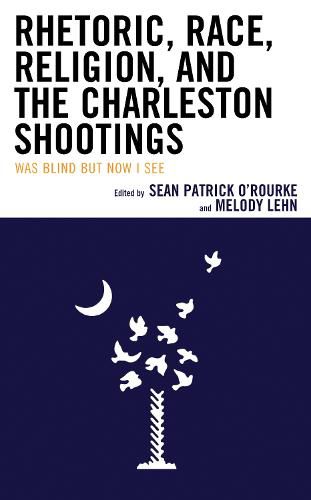Readings Newsletter
Become a Readings Member to make your shopping experience even easier.
Sign in or sign up for free!
You’re not far away from qualifying for FREE standard shipping within Australia
You’ve qualified for FREE standard shipping within Australia
The cart is loading…






Rhetoric, Race, Religion, and the Charleston Shootings: Was Blind but Now I See is a collection focusing on the Charleston shootings written by leading scholars in the field who consider the rhetoric surrounding the shootings. This book offers an appraisal of the discourses - speeches, editorials, social media posts, visual images, prayers, songs, silence, demonstrations, and protests - that constituted, contested, and reconstituted the shootings in American civic life and cultural memory. It answers recent calls for local and regional studies and opens new fields of inquiry in the rhetoric, sociology, and history of mass killings, gun violence, and race relations-and it does so while forging new connections between and among on-going scholarly conversations about rhetoric, race, and religion. Contributors argue that Charleston was different from other mass shootings in America, and that this difference was made manifest through what was spoken and unspoken in its rhetorical aftermath. Scholars of race, religion, rhetoric, communication, and sociology will find this book particularly useful.
$9.00 standard shipping within Australia
FREE standard shipping within Australia for orders over $100.00
Express & International shipping calculated at checkout
Rhetoric, Race, Religion, and the Charleston Shootings: Was Blind but Now I See is a collection focusing on the Charleston shootings written by leading scholars in the field who consider the rhetoric surrounding the shootings. This book offers an appraisal of the discourses - speeches, editorials, social media posts, visual images, prayers, songs, silence, demonstrations, and protests - that constituted, contested, and reconstituted the shootings in American civic life and cultural memory. It answers recent calls for local and regional studies and opens new fields of inquiry in the rhetoric, sociology, and history of mass killings, gun violence, and race relations-and it does so while forging new connections between and among on-going scholarly conversations about rhetoric, race, and religion. Contributors argue that Charleston was different from other mass shootings in America, and that this difference was made manifest through what was spoken and unspoken in its rhetorical aftermath. Scholars of race, religion, rhetoric, communication, and sociology will find this book particularly useful.